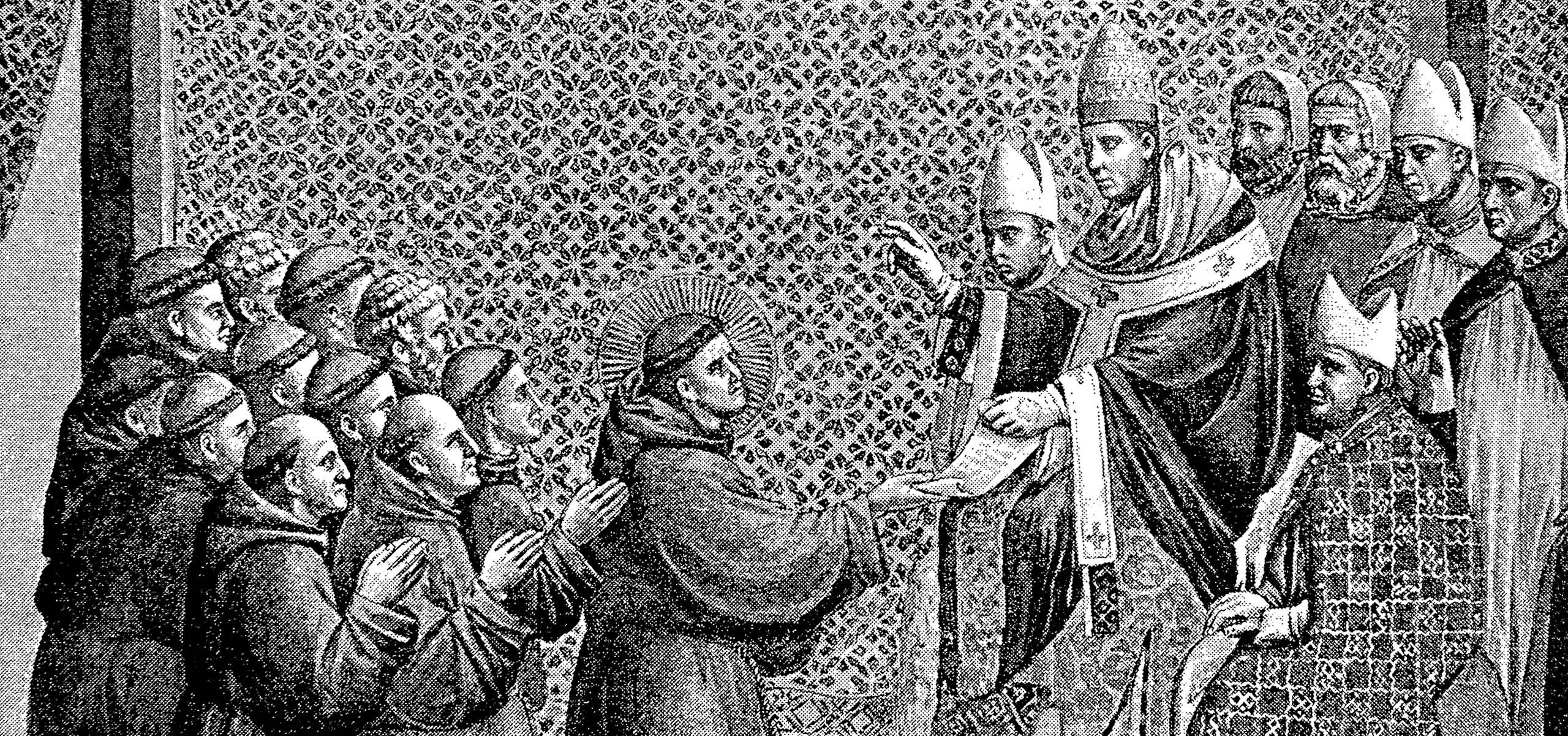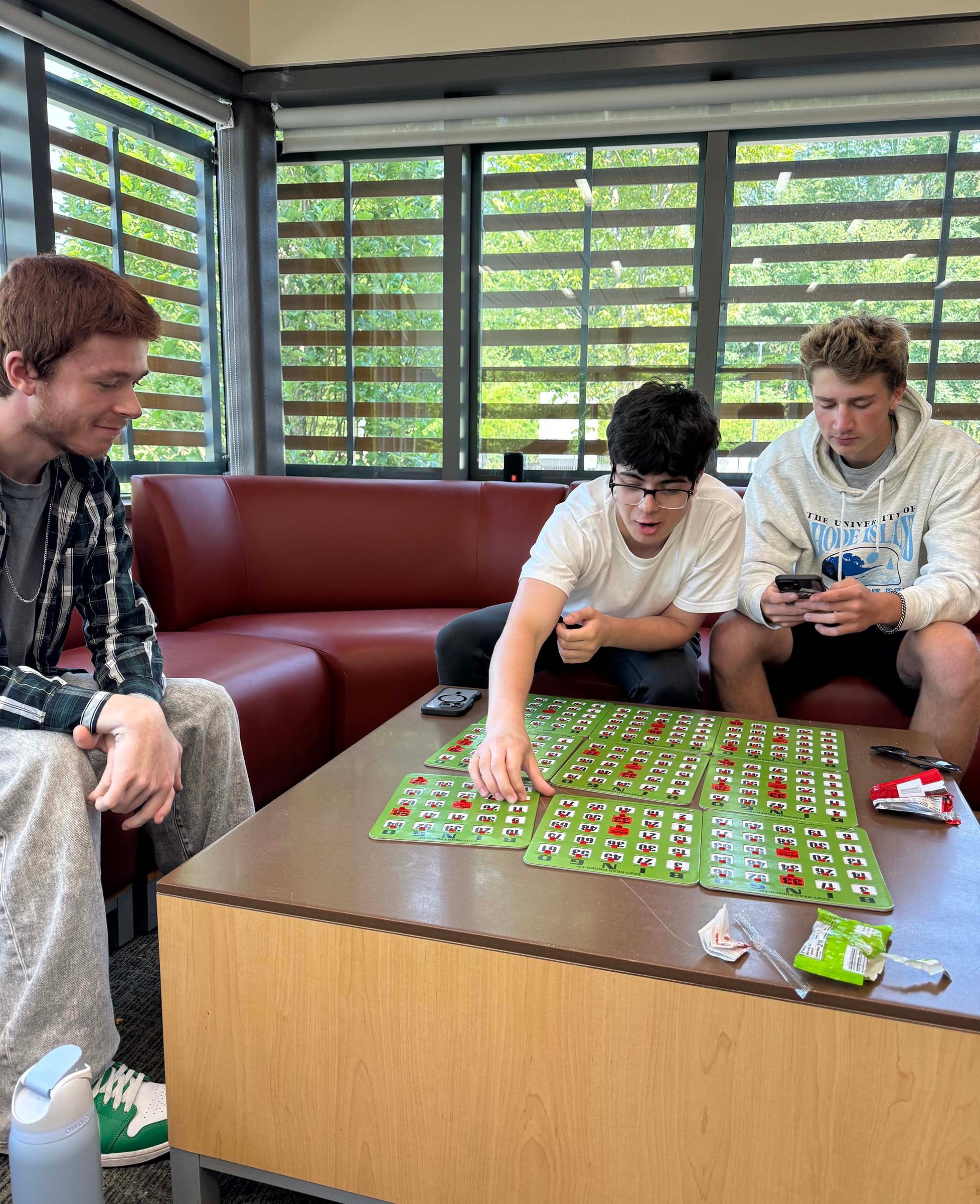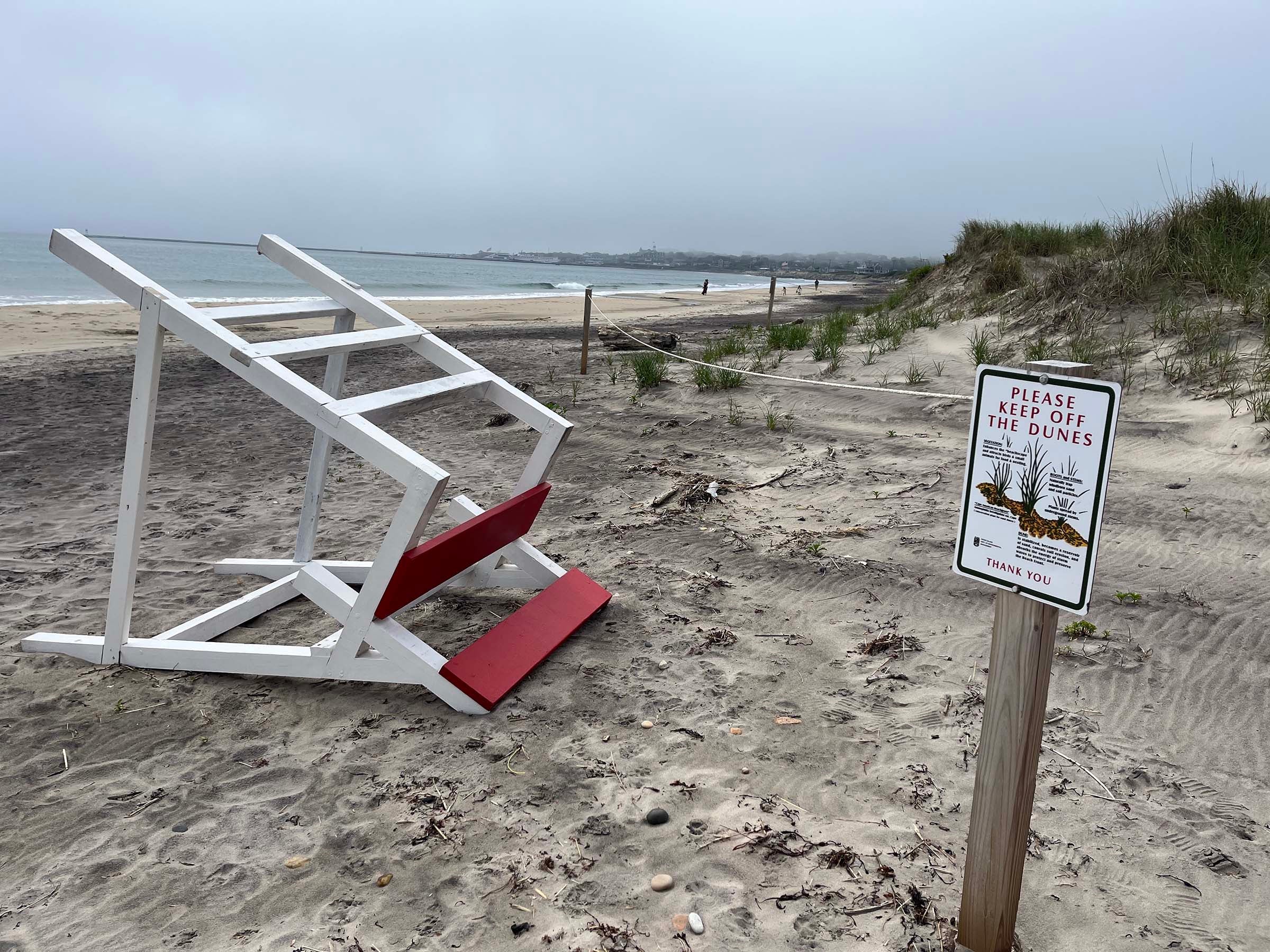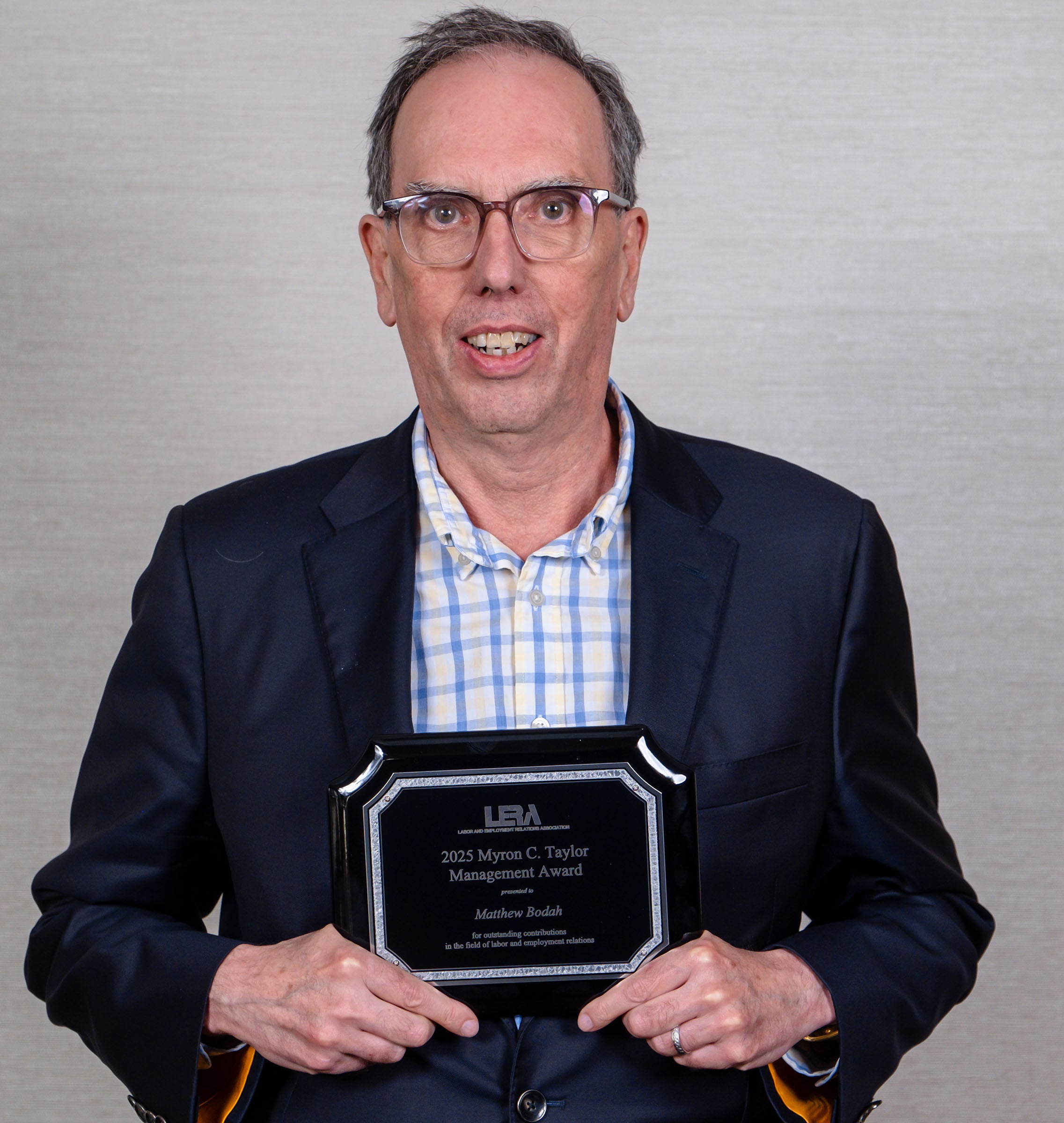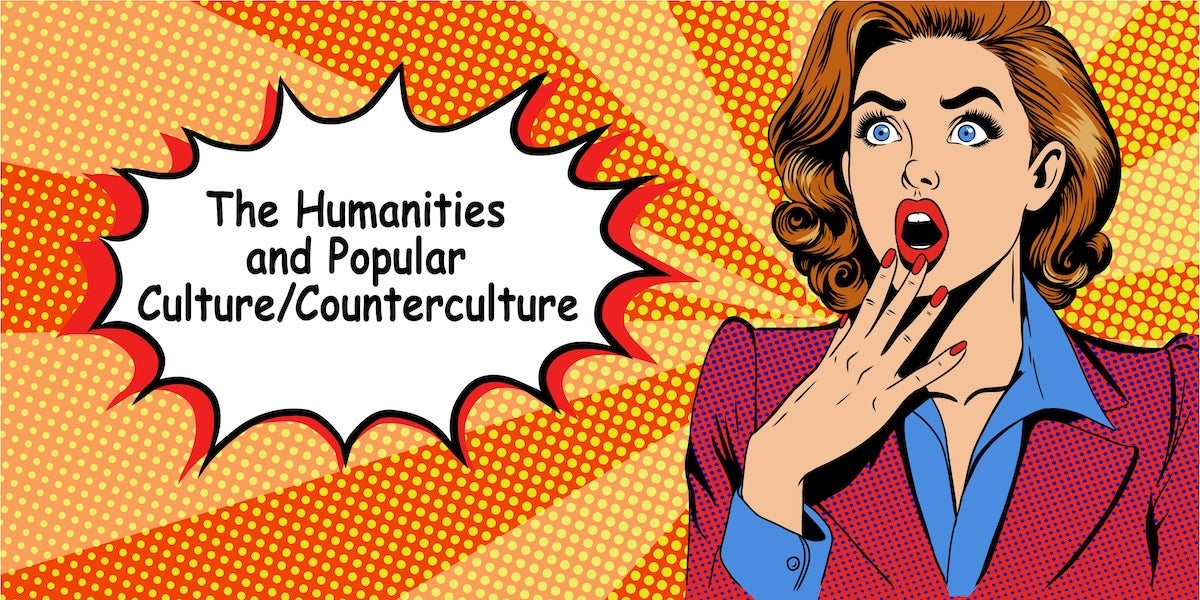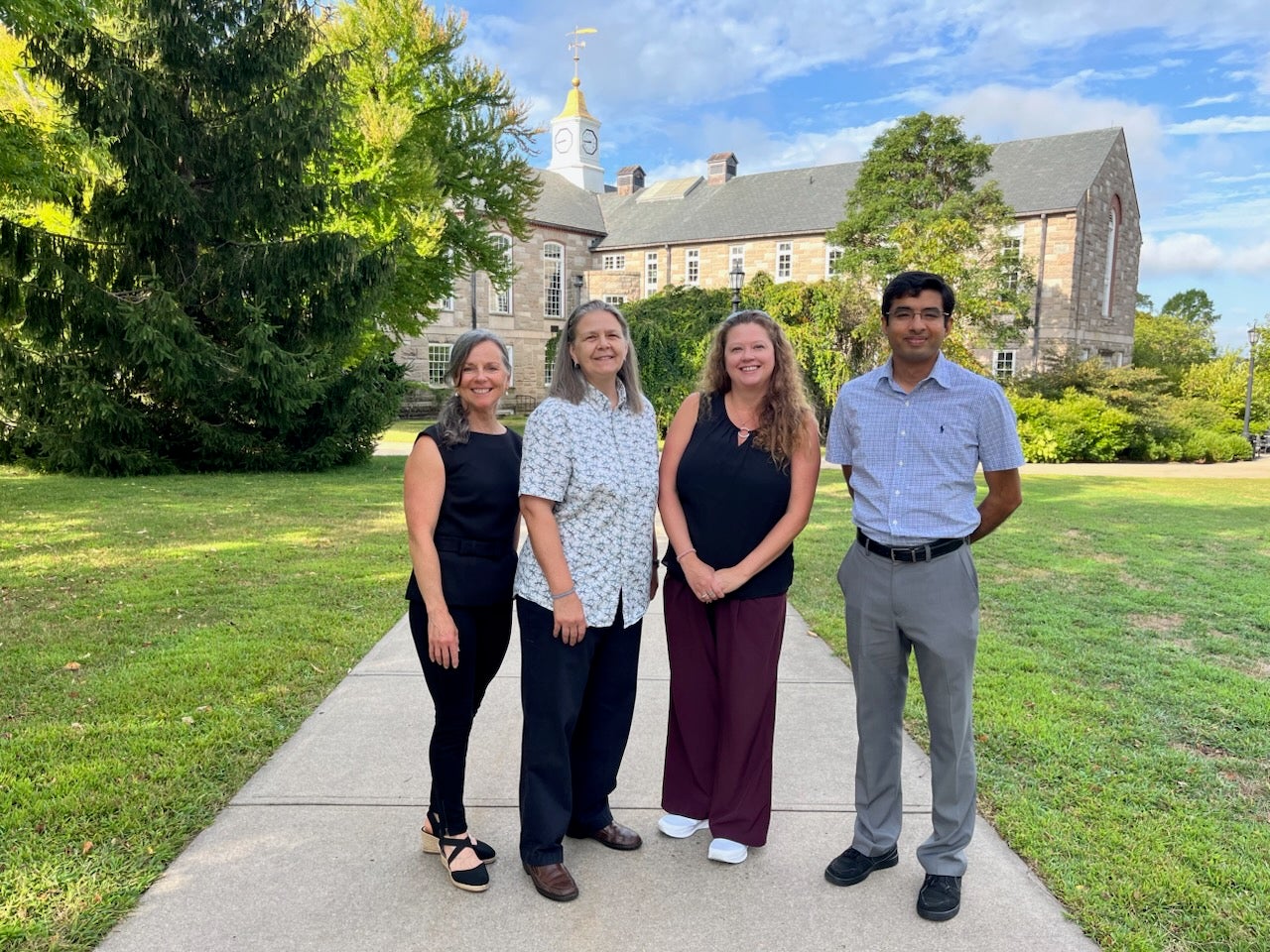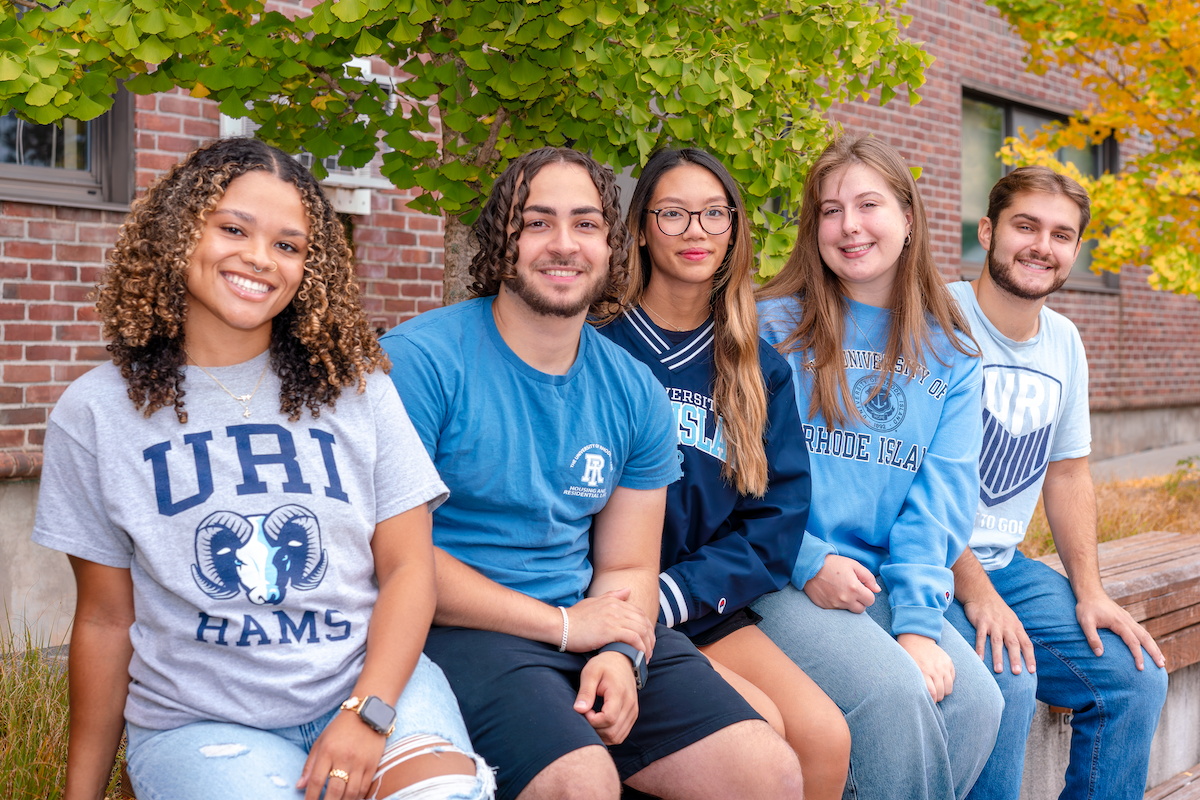Seven Popes Everyone Should Know

URI history professor, medievalist, and lead editor of The Cambridge History of the Papacy, Joëlle Rollo-Koster, shares her picks for some of the most historically significant popes.
People are sometimes surprised to learn that the papacy was not fully formed from its inception. It took centuries for the world’s oldest surviving institution to emerge victorious from the existential threats it faced throughout history. From the beginning, leaders questioned the authority of the bishop of Rome. And political and theological rivalries persisted throughout the Church’s existence. Here are some of the popes whose strong leadership and vision defended and advanced the Church and shaped the papacy.

LEO I
(440-461)
The First
Facing the decline of the Roman Empire and the so-called barbarian invasions, Leo successfully steered his ship to harbor. He espoused the full humanity and divinity of Christ as defined by the Nicene Creed, reaffirming it at the Council of Chalcedon in 451, and he strengthened the role and authority of the bishop of Rome (the pope). He supposedly convinced Attila the Hun not to attack Rome and dissuaded Gaiseric from destroying the city. Leo promoted charity and the care of all Christians, earning him the title “the Great.”

GREGORY VII
(1073-1085)
The Reformer
Centuries after Leo I, the papacy struggled to affirm its control over Christianity and independence from secular influence. Reforms were needed, and Gregory VII recognized this, enforcing clerical celibacy (previously minimally considered) and combating the buying and selling of ecclesiastical offices. He issued the Dictatus papae, which affirmed papal authority and excommunicated rulers, like Holy Roman Emperor Henry IV for overstepping papal authority in appointing bishops and abbots. Gregory VII set the stage for the political influence that his successors would wield.
INNOCENT III
(1198-1216)
The Puppet Master
A master politician, Innocent III involved himself in nearly every medieval monarchy. He claimed plenitudo potestatis—full papal power over secular authorities—and exercised influence over the Holy Roman Empire, England (Magna Carta), France, Aragon, and Hungary. He convened one of the most important church councils, the Fourth Lateran Council, which affirmed the real, not just symbolic, presence of Christ in the Holy Eucharist; ordered clerical reform; led efforts against heresies; and sought to reclaim Jerusalem after its fall in 1187, though the Fourth Crusade took Constantinople instead.
JOHN XXII
(1316-1334)
The Organizer
John XXII was an early pope of the Avignon Papacy, which moved the papal court to Avignon when Rome became politically unstable. Elected as a compromise candidate due to his advanced age, he reigned for over 20 years, organizing the papacy into an efficient tax-collecting agency. He opposed the radical Franciscans who rejected church wealth and controversially promoted the idea that the souls of the saved would not see God until the Last Judgment—a position he recanted on his deathbed.
JULIUS II
(1503-1513)
The Fighter
One of the few popes to wear a beard and personally lead an army, Julius II fought for papal independence from foreign invaders. Since the early Middle Ages, the Church had controlled territories in Italy that were coveted by European rulers. Determined to expel foreign powers, Julius II created the Holy League and drove out the French in 1512. He reconquered lost papal territories, securing the Church’s land-based political power for decades. He is known for his patronage of the arts, commissioning Michelangelo’s Sistine Chapel ceiling and Raphael’s Stanze, and initiating the reconstruction of St. Peter’s Basilica.

JOHN XXIII
(1958-1963)
The Conciliarist
In his five years as pope, John XXIII modernized the Catholic Church, emphasizing empathy, kindness, and charity over coercion. His affable and accessible personality highlighted the importance of pastoral care and social justice. He championed human rights, interfaith dialogue, and peace, notably during the Vietnam War. Most significantly, he initiated the Second Vatican Council, which sought to align the Church with contemporary realities. He encouraged the use of vernacular languages over Latin, promoted ecumenism, and modernized canon law, earning him the title “Good Pope John.”
JOHN PAUL II
(1978-2005)
The Traveler
With a 27-year reign, John Paul II was one of the longest-serving popes. He conducted approximately 120 international trips, fostering interfaith dialogue and increasing the Church’s outreach. He understood global affairs and championed peace, workers’ rights, poverty reduction, and social justice. He took a historic stance by apologizing for past Church transgressions, including antisemitism, anti-Islamic sentiment, the Crusades, and the Inquisition. But he maintained a conservative stance on women’s roles in the Church, did little to address clergy sexual abuse scandals, and opposed abortion and euthanasia.
—Joëlle Rollo-Koster
Latest All News
- URI pilot math program produces positive resultsKINGSTON, R.I. – Sept. 5, 2025 – A two-week pilot program designed by the URI Math Department to improve the math skills of incoming freshmen at the University of Rhode Island has produced impressive results. The “Level Up!” program, held on the Kingston Campus from July 27 to Aug. 8, was free for participants. By […]
- Block Island and University of Rhode Island partner to strengthen coastal resilienceKINGSTON, R.I. – Sept. 5, 2025 – The University of Rhode Island Coastal Institute has officially designated Block Island as its newest Climate Response Demonstration Site (CRDS), formalizing a partnership to protect the island’s natural systems, infrastructure, and freshwater resources. The New Shoreham Town Council voted unanimously in support of the designation on July 7, […]
- URI Vice Provost Matthew Bodah awarded for his work in the field of labor and employee relationsKINGSTON, R.I. – Sept. 4, 2025 – Negotiations come in many shapes and sizes—from small decisions like picking a restaurant, to more significant issues like debating salary—but a common thread in many is that they can be drawn out and complex. This is especially true in labor negotiations—one side proposes, the other counters until an […]
- URI Humanities series takes serious look at pop cultureKINGSTON, R.I. – Sept. 4, 2025 – From a marching band to Shakespeare–and Taylor Swift in between–the University of Rhode Island’s Center for the Humanities will take an academic view of pop culture with its annual lecture series this school year. But academic doesn’t mean not fun. “The Humanities and Popular Culture/Counterculture,” which opens this […]
- URI receives first-ever NIH T32 award to launch transdisciplinary biomedical research training programKINGSTON, R.I. – Sept. 3, 2025 – The University of Rhode Island has received its first-ever National Institutes of Health (NIH) T32 Predoctoral Training Grant, marking a major milestone in URI’s growth as a research institution. Funded by the National Institute of General Medical Sciences, this prestigious grant supports the new T32 Transdisciplinary Training in […]
- Meet URI’s resident assistantsKINGSTON, R.I.—Sept. 2, 2025—While the rest of the student body at the University of Rhode Island enjoys the final days of summer, about 160 resident assistants (RAs) and resident academic mentors (RAMs) arrive on campus in mid-August for trainings to prepare for the start of the school year. Navigating academic and social challenges can be […]



